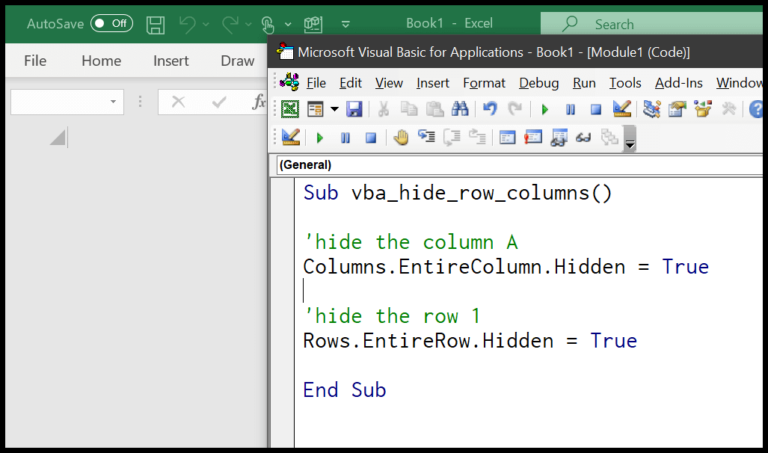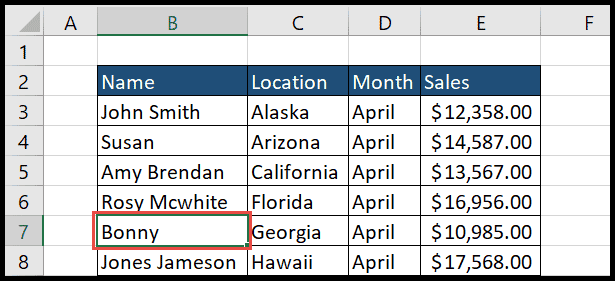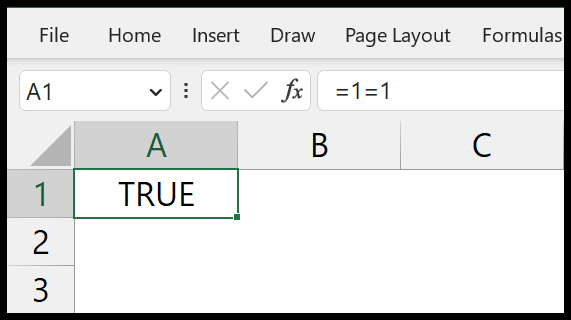When it comes to the taxability of software as a service (SaaS) in Texas, there’s a mix of clarity and complexity. In the Lone Star State, SaaS falls under the umbrella of taxable data processing services as defined by the Texas Comptroller of Public Accounts. That means businesses dealing with SaaS are generally required to collect sales tax on a portion of their sales. However, it’s not all as straightforward as it might seem; there are exemptions and nuances to consider.
The Texas Tax Code provides some relief with a specific exemption that applies to data processing services, including SaaS. According to Section 151.351, there is an exemption of 20 percent on the value of information services and data processing services. This results in an effective tax rate of 80% on SaaS offerings, easing the tax burden somewhat for both providers and consumers. Moreover, while the state sales and use tax rate stands at 6.25%, local taxing jurisdictions can add up to 2%, combining for a maximum rate of 8.25%.
For businesses trying to navigate Texas’s tax landscape, understanding these rules is critical. The state’s approach to SaaS taxation mirrors its commitment to keeping up with technological advances and their implications in the marketplace. As SaaS continues to grow in popularity and usage, companies must stay informed about how these services are taxed to remain compliant with Texas regulations.
Understanding SaaS and Texas Tax Law
In Texas, Software as a Service (SaaS) transactions have their own set of tax implications. The state’s tax code has specific provisions for SaaS, affecting how businesses handle sales tax.
Definition of SaaS
Software as a Service, or SaaS, represents a software distribution model where applications are hosted by a third-party provider and made available to customers over the internet. Typically, SaaS is utilized on a subscription basis and is centrally hosted, often referred to as a cloud-based solution.
Overview of Texas Tax Code
Texas Tax Code treats SaaS as a taxable service under the category of data processing services. According to the code, providers must collect a 6.25% state sales and use tax on all taxable SaaS transactions. Additionally, local taxing jurisdictions within Texas can levy up to 2% in sales and use tax, making the potential maximum combined rate 8.25%. Notably, the Texas tax code includes an exemption, where 20% of the total charge for certain software and digital services is exempt from the state’s sales tax, effectively taxing only 80% of a SaaS sale.
Taxability of SaaS in Texas
In the Lone Star State, software as a service (SaaS) is generally considered taxable. However, Texas offers a unique exemption that affects the tax rate applied to these services.
Sales Tax on SaaS
Texas imposes a 6.25% state sales tax on all taxable SaaS along with the option for local taxing jurisdictions to add up to an additional 2%. This makes for a potential maximum combined rate of 8.25%. Despite this, 80% of a taxable SaaS sale is what’s actually subject to sales tax due to a specific exemption provided by the state.
Taxable vs Non-Taxable Services
It’s important to distinguish between taxable and nontaxable services in Texas. While SaaS is taxable, certain software and digital services may be exempt. Customers should note that a full exemption from sales tax is possible if a properly completed certificate is received by the SaaS provider, shifting the responsibility to calculate the tax to the customer.
Data Processing Services as Taxable
Texas categorizes SaaS as a form of data processing service, which is a taxable entity. The tax code, however, mitigates the tax burden by offering a 20% exemption on the value of information and data processing services. This exemption aims to support the tech industry’s growth within Texas.
Note: This brief guide is based on the tax rules in effect at the time of writing and could be subject to changes. For the most accurate and up-to-date information, consult a tax professional or the Texas Comptroller’s office.
Tax Compliance for SaaS Providers
When it comes to tax compliance, SaaS providers in Texas need to navigate the complexities of sales and use tax, understand the implications of nexus, and utilize resale certificates appropriately.
Sales and Use Tax Compliance
Texas imposes a 6.25% state sales and use tax on SaaS, which is considered a taxable service. Providers must also be aware that local jurisdictions may tack on up to an additional 2% tax. This could make the total sales and use tax rate as high as 8.25%. Keeping accurate records of these transactions is paramount for all SaaS businesses operating in Texas.
For compliance, providers need to consistently:
- Calculate and collect the correct amount of tax from customers.
- File and remit taxes to the Texas Comptroller’s office on time.
Nexus and Its Implications
Nexus, simply put, is a connection that triggers tax obligations. In Texas, nexus can be established through physical presence or economic activity—like sales volume. Once a SaaS provider hits the nexus threshold, they must register with the Texas Comptroller of Public Accounts and start collecting tax from Texas customers.
To determine nexus, providers should:
- Review their level of sales in Texas regularly.
- Register for a sales tax permit if they meet the criteria for economic nexus.
Resale Certificates for SaaS
A resale certificate allows a SaaS provider to make tax-free purchases of items that will be resold in the form of a service. It’s vital that these certificates are fully completed and retained on file. Providers should collect and verify the validity of resale certificates when selling to other businesses that will resell their service.
The steps for utilizing resale certificates involve:
- Issuing and accepting properly issued certificates.
- Keeping track of the certificates’ expiration dates for renewal.
By staying up-to-date with these areas of tax compliance, SaaS providers can minimize the risk of penalties and ensure they’re collecting and remitting the right amount of sales tax.
Calculating Texas SaaS Taxes
When determining the tax liability of SaaS in Texas, businesses must navigate two main areas: the applicable tax rates and the state’s economic nexus laws.
Determining Tax Rates
Texas imposes a state sales tax of 6.25% on taxable SaaS products. However, local jurisdictions may add additional sales taxes, that can tally up to 2% more. This means the maximum potential tax rate one might pay in Texas is 8.25%. To calculate the specific tax amount owed, they must sum the state tax rate and any local tax rates, then apply this total to the taxable SaaS sale amount.
For example:
- State Tax Rate: 6.25%
- Local Tax Rate: Up to 2%
- Total Tax Rate: Up to 8.25%
- Taxable SaaS Sale: $100
- Total Sales Tax: Up to $8.25
It is worth noting Texas excludes 20% of the charge for certain software and digital services from taxation.
Economic Nexus and Sales Thresholds
Economic nexus in Texas applies to remote sellers who exceed $500,000 in total Texas revenue over a rolling twelve-month period. Sellers who meet or exceed this sales threshold have established an economic nexus in the state and are thereby required to collect and remit Texas sales tax on taxable SaaS products provided to Texas customers. Companies must be vigilant in monitoring their sales to ensure compliance should they meet these criteria.
Exemptions and Credits
In Texas, certain SaaS and digital products benefit from tax exemptions, while additional tax credits and deductions can reduce the overall tax liability for eligible companies. These financial reliefs can significantly affect a company’s bottom line.
Exemption for Digital Products
Texas law allows for a 20% exemption on the value of information services and data processing services, which includes many digital products. This means that for businesses providing SaaS solutions, 80% of their charges would be subject to sales tax, but the remaining 20% could be exempt.
- Non-taxable services: Payment processing services have been specifically excluded from taxable data processing services, relieving them from sales and use tax.
Tax Credits and Deductions
-
Data Centers: Companies operating data centers in Texas may be eligible for certain tax incentives, including sales and use tax exemptions for data center operations.
-
Credit Reporting: Sales tax is applied when credit reporting services are furnished to Texas residents or businesses operating within the state; however, credit reporting is distinct from data processing and thus does not benefit from the 20% exemption.
Comparison with Other States
When considering the tax landscape for SaaS, Texas stands out with its unique approach, but a look at how other states treat SaaS sales tax can offer useful contrasts.
SaaS Taxation in Different States
- Arizona: SaaS is generally not deemed taxable because it is considered a service and not tangible personal property.
- California: Also treats SaaS as a nontaxable service since the state does not tax services unless specifically enumerated as taxable.
- Connecticut: Taxes SaaS, viewing it as tangible personal property and thus subjects it to sales tax.
- Washington: Considers SaaS as tangible software, treating it as taxable.
- Alaska: Has no state-level sales tax, but local jurisdictions may impose taxes on SaaS.
- Colorado: Offers home-rule jurisdictions, leading to a patchwork of sales tax rates and rules which can apply to SaaS.
- Florida: Does not tax SaaS. It is considered a non-taxable service.
- Georgia: Does not have a taxation regime for SaaS, treating it as a non-taxable service.
- Hawaii: Applies a general excise tax to nearly all transactions, including SaaS.
- Illinois: Each municipality may have different rules but SaaS is often considered a service and not taxable.
- Indiana: Taxes SaaS. It sees it as taxable digital property.
- Massachusetts: Assesses sales tax on pre-written software accessed remotely, suggesting SaaS may be taxable.
- New York: Taxes SaaS when it is considered pre-written software that is electronically delivered.
- North Dakota: SaaS falls under taxable sales as it is considered a service.
- Ohio: Has specific rules depending on whether the customer is a business or consumer, but generally does not tax SaaS.
- Pennsylvania: Does not tax electronically downloaded software, which includes SaaS.
- South Carolina: Has ruled that SaaS is a service and does not subject it to sales tax.
- South Dakota: Treats SaaS as a product, thereby applying sales tax to it.
- Tennessee: Taxes SaaS as the sale of tangible personal property.
- Virginia: Considers SaaS a non-taxable service.
- West Virginia: Taxes digital products and SaaS is likely considered taxable under this classification.
Each state’s approach to SaaS taxation varies, with nuanced rules and criteria determining taxability. Texas partially exempts SaaS by taxing only 80% of the sale as part of its broader data processing services category.
Practical Considerations for SaaS Businesses
When operating a SaaS business in Texas, it’s crucial to navigate the intricacies of the state’s sales tax, especially since it affects subscription models and the provision of updates. One must also be aware of potential audit risks associated with misclassification.
Subscription and Billing Models
For SaaS companies in Texas, the way they bill customers can have significant tax implications. Texas taxes SaaS as a data processing service, but only 80% of such sales are taxable, with a 20% exemption provided. Businesses should structure their subscription models carefully; this involves a clear delineation on invoices to ensure compliance with tax laws. They should account for the state’s 6.25% sales tax and potential additional local taxes, keeping the maximum combined rate at 8.25%.
- Remote Access: If customers can access software remotely, this typically qualifies as a SaaS transaction.
- Maintenance Fees: Regular maintenance included in subscriptions should keep in mind the tax exemption.
Software Updates and Modifications
SaaS products constantly evolve, and Texas businesses must consider how software updates and modifications play into taxability. Since updates are part and parcel of most SaaS offerings, they should make it clear whether such updates are included in the initial purchase or serve as a separate billable item. This distinction can affect the tax calculation and should be transparent to both the provider and the user.
- Free Updates: Indicating which updates are free and part of the original service offering can affect the tax responsibility.
- Paid Upgrades or Enhancements: Should be separately listed to accurately reflect the tax base.
Challenges and Audit Risks
The complexity of SaaS transactions poses audit risks, especially when businesses do not correctly apply exemptions or inaccurately define their service for tax purposes. They must ensure that the revenue stream from subscriptions is reported correctly and that any modifications to software or billing don’t inadvertently alter the tax obligations.
- Record Keeping: Maintain detailed records of all transactions, exemptions applied, and tax collected.
- Tax Audits: Stay prepared for audits by regularly reviewing tax returns and having a clear explanation for all billing practices.
Frequently Asked Questions
When doing business in Texas, one must navigate the complexities of sales tax. To assist, here are some key questions answered explicitly for those dealing with SaaS and other services.
Do I need to pay sales tax on software licenses in Texas?
Yes, Texas imposes a 6.25% state sales and use tax on all taxable software licenses, and local taxing jurisdictions may add up to 2% for a combined maximum rate of 8.25%.
Which services in Texas are exempt from sales tax?
Specific services in Texas are exempt from sales tax. For instance, internet access services and certain information services, like news syndicates, are exempt.
Is web development considered a taxable service in Texas?
No, web development services are generally not subject to sales tax in Texas unless they involve the creation of a taxable item, such as a graphics design for a product.
Are data processing services subject to sales tax in Texas?
Yes, data processing services are considered taxable in Texas. However, 80% of the charges are taxable and 20% are exempt, in recognition of the data processing as a service.
Does Texas tax software programming services?
Software programming services are generally not subject to sales tax in Texas if they are separately stated from the sale of hardware or other taxable items.
Are accounting services in Texas subject to sales tax?
No, accounting services in Texas are not subject to sales tax. Professional services such as accounting, legal, and medical services are generally exempt.


